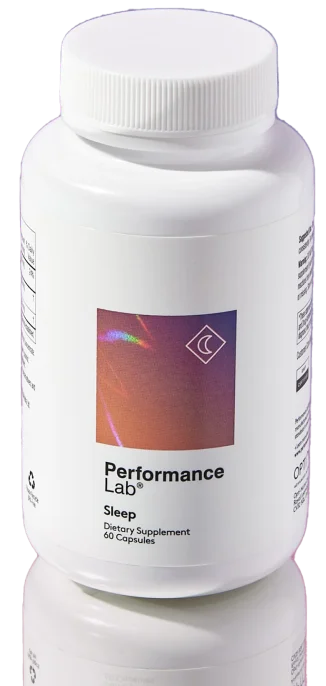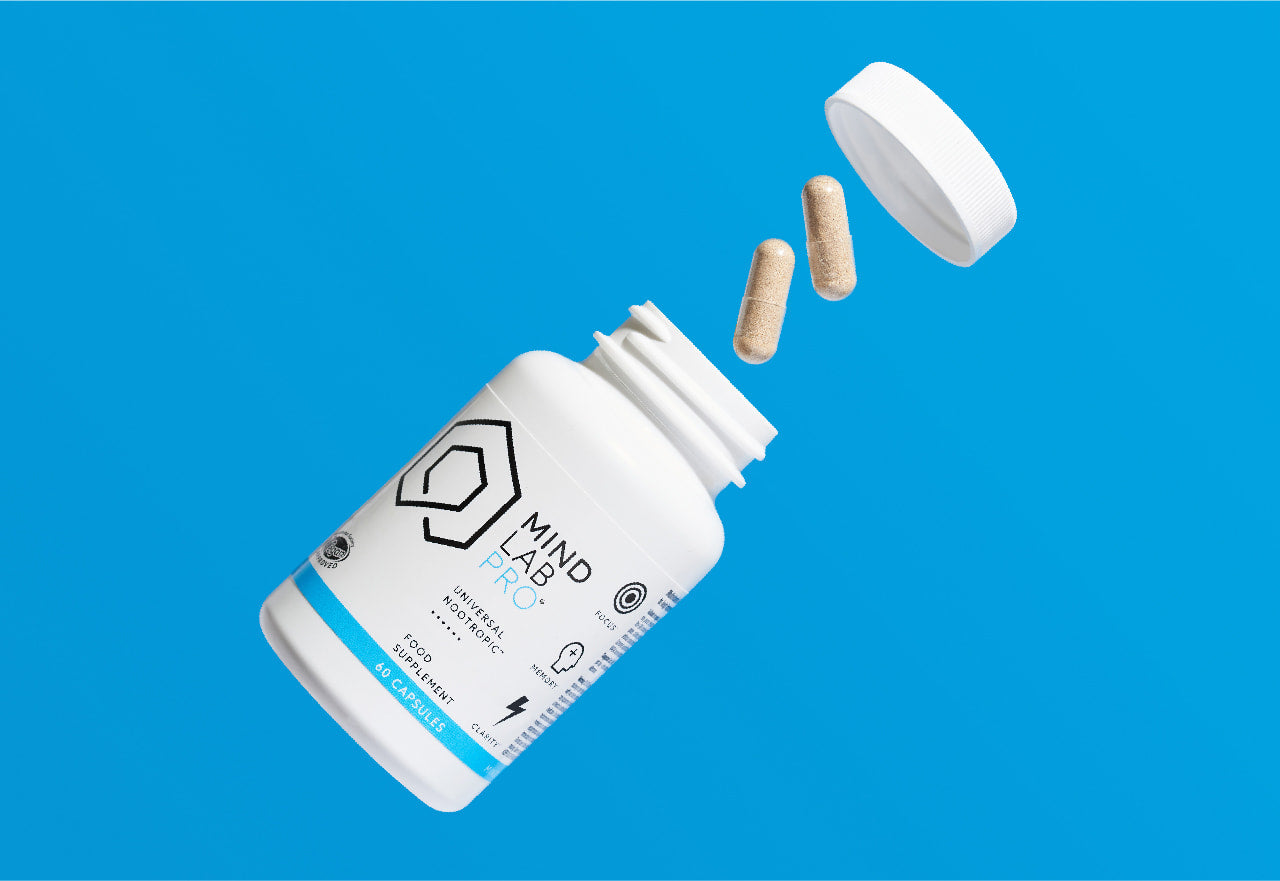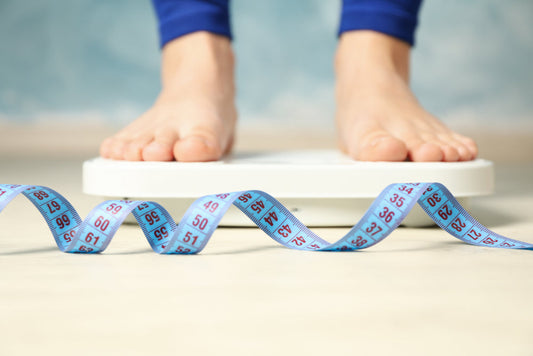Healthy nutrition status sets the foundation for better sleep and emotional stability.
Don’t freak out… but a vitamin-deficiency might be responsible for why you’re having sleep issues and freaking out so much.
Research suggests that taking vitamins may influence sleep quality and anxiety, with studies showing an association between vitamin intake and various sleep-related outcomes.
Or it could be that sleep problems and anxiety are the root causes of your vitamin-deficiency.
After all, it’s difficult to maintain a healthy diet when you’re feeling stressed or in psychological distress all the time.
Either way, a healthy nutrient status seems to correlate with sleep promoting healthy habits and emotional stability. Could simple vitamins and minerals be effective natural sleep aids?
Take for example these two clinical trials or studies:
Study #1 – in a systematic review on the relationship between micronutrient status and sleep patterns, the researchers found links between trace elements, minerals, and vitamins to sleep patterns. (1)
Study #2 – in a clinical study on the effects of four-week multivitamin supplementation on mood and neurocognitive function in healthy, young adults, the researchers observed beneficial effects on mood, underpinned by elevated B-vitamins and lowered homocysteine. (2)
But which vitamins are the best to improve sleep quality and anxiety?
Admittedly, the direct links between specific micronutrients and complementary and integrative health patterns associated with sleep and mood require further research.
A critical review of available studies is necessary to determine the efficacy of vitamins for sleep and anxiety. Current psychiatry reports are valuable resources for evidence-based treatments and provide up-to-date insights into the effectiveness of various interventions.
Studies suggest that certain vitamins and minerals may have a positive impact on sleep quality and anxiety, but more conclusive research is needed to confirm these effects. We need to better understand the full scale and implications of micronutrient status on sleep problems and anxiety.
Even so, general micronutrient deficiencies remain a global public health concern, and successful public health interventions have included multivitamin supplementation, fortification, and other food-based strategies. (3)
With that in mind, adding an effective, comprehensive multivitamin supplement to your daily health stack seems best practice for addressing any and all issues related to micronutrient deficiencies.
However, to improve sleep habits and gain anxiety relief, a few minerals and vitamins do stand out.
To gain quality sleep and emotional stability, consider adding the following micronutrients to your daily diet...
What are the Best Vitamins and Minerals for Sleep and Anxiety?
Magnesium for Restful Sleep

Involved in 300+ bio-pathways, magnesium is a life-essential mineral linked to sleep quality, emotional wellbeing, blood pressure, and overall mind-body performance.
Magnesium is one of most important dietary minerals for both mental health and physical health, and it’s a mineral that many of us could get more of in our diets.
Among athletes and nootropic nerds, magnesium is perhaps best known for its relaxing “inhibitory” actions on the central nervous system (CNS).
In the body, the magnesium cation (Mg2+) is a key cofactor required to calm excitable neural activity in the brain and in muscle tissue.
This explains why athletes and bodybuilders frequently take magnesium-rich “muscle soak” baths: magnesium helps decrease neuromuscular tension and muscle spasms. (4)
Magnesium’s role as a “relaxing” mineral in the body also explains its importance to sleep.
By settling down and supporting nervous system health and relaxing worn-out muscle tissue, magnesium promotes deeper, longer quality sleep that’s undisturbed by firing neurons and twitchy muscles. Hence why it's often recommended for restless leg syndrome. Hopefully helping you to fall asleep easier, reducing sleep onset latency.
And research suggests that magnesium supplementation may indeed improve sleep quality by promoting:
-
Sleep onset latency (the transition from being awake to sleeping, helping you fall asleep faster)
-
Sleep duration (total amount of time a person sleeps)
-
Sleep efficiency (% of time spent asleep while in bed)
-
Fewer incidents of waking up too early. (5)
In addition to improving overall sleep quality, magnesium also plays a role in maintaining emotional stability.
With evidence suggesting that magnesium modulates the hypothalamic-pituitary-adrenal (HPA) axis, the physiological axis that facilitates the stress response, magnesium deficiency seems to correlate with stress disorders:
-
Magnesium deficiency in mice has been linked to enhanced anxiety-related behavior associated with HPA dysregulation, suggesting that “dysregulations of the HPA axis may contribute to the hyper-emotionality in response to dietary induced hypomagnesaemia .” (6)
Under conditions of magnesium deficiency, stress-related symptoms of anxiety and emotional imbalance are heightened.
For both mineral-sweating athletes and magnesium-deficient older adults, adding a magnesium supplement to your daily health stack is a smart move to limit your risk of magnesium deficiency and Mg-deficiency-related insomnia symptoms, as well as daytime sleepiness and anxiety.
Related Post:Best Vitamins for Insomnia and Sleep Deprivation
Top Food Sources of Magnesium

A few magnesium-rich foods you can add to your diet to better optimize your magnesium levels include:
-
Green leafy vegetables (e.g., spinach and kale)
-
Raw cacao, or dark chocolate
-
Avocado
-
Bananas
-
Cashews, almonds, and Brazil nuts
-
Legumes
-
Whole grains
-
Salmon
Recommended Daily Allowance for Healthy Adults: 310mg (females) and 400 mg (males), under 30 years. After that, it increases to 320mg (females) and 420mg (males). (7)
Vitamin D to Improve Sleep Quality

Vitamin D, or “Sunny D,” is a fat-soluble vitamin synthesized by our skin when exposed to the sun that plays a key role in regulating bone health and mood.
Vitamin D, or cholecalciferol, is the only nutrient our body synthesizes when exposed to the sun, making direct sunlight a key ingredient to a nutritionally rich lifestyle.
And, yet, roughly 50% of the world population may be getting a lack of sunlight, potentially aggravating the prevalence of vitamin D deficiency. (8)
According to a 2011 study, around 41.6% of the U.S. adult population is deficient in vitamin D, suggesting a dire, widespread need for vitamin D supplementation. (9)
As one of several natural vitamin supplements and micronutrients critical for our health and wellbeing, vitamin D is associated with a wide range of bodily systems, including cognition, immunity, bone health, protein synthesis, and testosterone production.
It’s been hypothesized that vitamin D play may also have a significant effect on sleep patterns:
-
Though the suggestion that vitamin D deficiency is linked to sleep disorders is somewhat controversial, one meta-analysis on the clinical research pertaining to vitamin D’s effects on sleep quality found that “vitamin D deficiency is associated with a higher risk of sleep disorders.”
The particular sleep disorders or sleep disturbances associated with vitamin D deficiency include:
-
Poor sleep quality
-
Short sleep duration
-
General sleepiness (10)
Related article: The Connection between Vitamin D, Sleep and Restful Nights
Can Vitamin D Reduce Anxiety?
For those who live in areas with seasonally low sunlight, taking a vitamin D dietary supplement can be a serious life-changing decision. With regards to the relationship between vitamin D status and cognition, some research suggests that:
-
Low vitamin D levels correlate with depression and anxiety disorders. (11)
-
Vitamin D supplementation may improve depression symptoms associated with seasonal affective disorder (SAD). (12)
Maintaining adequate vitamin D levels can also support psychological well-being by promoting emotional stability and a positive mood. However, if vitamin D supplementation does not resolve symptoms of depression or anxiety, medical treatment may be necessary to address underlying health concerns.
The combination of poor sleep and anxiety can make the miserably dark winter months much more miserable.
This is why it’s so important to take an effective vitamin D supplement come wintertime, if you live far from the Earth’s equator.
Check out Performance Lab® D3+K2
Top Food Sources of Vitamin D

While the best (and easiest) way to increase your vitamin D levels is to get more sunlight in your life, dietary vitamin D remains a key component of a healthy, whole-food diet.
Here are a few of the top food sources of vitamin D:
-
The flesh of salmon, sardines, tuna, and herring
-
Cod liver oil
-
Egg yolk
-
Mushrooms
-
Fortified dairy products
Recommended Daily Allowance for Adults: 600IU (15mcg) for adults up to 70; 800 IU (20mcg)for adults over 70. (13)
Zinc for Healthier Sleep Patterns

Involved in immune health, protein synthesis, and testosterone activity, zinc is a life-essential trace mineral that must be consumed regularly to avoid deficiency.
The importance of zinc to human life can’t be understated. Required for healthy human development, zinc cofacilitates the healthy growth and development of adolescents, and this trace mineral remains a key ingredient to a healthy lifestyle throughout adulthood.
Because zinc is a trace mineral, it’s only required in small amounts to perform its metabolic duties throughout the brain and body.
And, yet, in areas of high cereal and low animal food consumption, zinc deficiency is a problem. (14)
This isn’t necessarily due to a lack of available zinc in the diet but rather a lack of bioavailable zinc, meaning zinc that may be properly absorbed and used by the body.
Those committed to an entirely plant-based diet are particularly susceptible to zinc deficiency, hence the emphasis on zinc in many vegan multivitamin nutritional supplements.
2023 research examining nutrient levels among people on a plant-based diet noted that zinc intake among vegans and vegetarians was significantly lower than among omnivores. It identified zinc as a critical nutrient for anyone on a vegan diet. (15)
However, for vegans and non-vegans alike, zinc is a mineral worth emphasizing in the diet, given its importance to potentially enhanced sleep quality, sleep efficiency, and cognition.
According to both animal and human research, the relationship between zinc and sleep seems to cut both ways:
-
Amount of sleep seems to influence zinc serum concentration.
-
Zinc supplementation seems to improve sleep amount and quality.
In other words, sleep deprivation and zinc deficiency can be somewhat of a mutual downward spiral. (16)
Lack of sleep may contribute to a lack of zinc activity, and vice versa.
Related article: Does zinc help with sleep?
Of course, this spiral may be disrupted by either getting better sleep or adding an effective zinc supplement to diet - or, ideally, both.
The second option (supplementing zinc) has been clinically observed to improve sleep quality, even among commonly sleep-deprived professions like nursing:
-
One study on the effect of zinc supplementation on sleep quality of ICU nurses observed a simultaneous improvement on serum zinc levels and sleep quality scores measured by the Pittsburgh Sleep Quality Index, leading the study’s researchers to the conclusion that “zinc supplementation could be associated with better sleep quality, subjective sleep quality, and sleep latency in this group of workers.” (17)
Similarly, another study on a commonly sleep-deprived demographic (female students) observed an inversely correlated relationship between serum zinc levels and mood disorders, such as depression and anxiety. (18)
In a nutshell, maintaining optimal levels of zinc not only benefits sleep quality but may improve depression and anxiety-related mood disorders.
Check out Performance Lab® Zinc
Top Food Sources of Zinc

Because the body doesn’t store zinc, this mineral must be consumed daily to constantly maintain all the zinc-related metabolic pathways. With that in mind, a few of the most zinc-rich foods include:
-
Beef, lamb, pork, and chicken
-
Oysters
-
Crab
-
Lobsters
-
Legumes
-
Flax, hemp, pumpkin, squash, and sesame seeds
-
Almonds, peanuts, pine nuts, and cashews
-
Eggs
-
Dairy
-
Quinoa, rice, and oats
-
Raw cacao, or dark chocolate
Recommended Daily Allowance for Adults: 8mg (females) and 11 mg (males). However, the RDA jumps to 11 mg during pregnancy and 12 mg during breastfeeding. (19)
B-Vitamins for the Blues

A complex of water-soluble vitamins that are vital to healthy cognitive development, metabolic energy expenditure, and mood-related neurochemical synthesis.
Feeling down? Take B-vitamins for the blues!
Most commonly associated with feel-good energy drinks and mood enhancement, B-vitamins include a nootropic complex of eight essential vitamins that co-regulate various metabolic pathways involved in neurotransmitter synthesis, energy expenditure, and circulation.
These eight B-vitamins include:
-
B1 – Thiamine: required to break down carbohydrates into fuel.
-
B2 – Riboflavin: required for normal cell growth and function.
-
B3 – Niacin: assists with cardio health and cognitive performance.
-
B5 – Pantothenic Acid: helps metabolize macronutrients into energy.
-
B6 – Pyridoxine: required for neurotransmitter synthesis and cell formation.
-
B7 – Biotin: converts food to energy; strengthens hair, skin, and nails.
-
B9 – Folate: important vitamin for healthy cell growth and metabolism.
-
B12 – Cobalamin: vital cofactor in DNA synthesis, nerve health, and red blood cell formation. (20)
The general bio-mechanisms of B-vitamins involve metabolic energy expenditure, red blood cell formation, neurochemical production, and nervous system function.
And much more. It’s not hyperbolic to say that B-vitamins are important to virtually all aspects of mind and body health, with B-vitamins showing pronounced benefits on mood symptoms related to depression and anxiety. (21)
For sleep in particular, a few studies have identified improvements in sleep quality with B-vitamin supplementation. Respectively, these studies found have observed that B-vitamins may help with:
-
Reducing sleep-disruptive nocturnal leg cramps. (22)
-
Production of sleep-related serotonergic neurochemicals such as serotonin and melatonin production, synthesized from amino acids. (23, 24)
-
The anxiolytic effects of magnesium when combined with vitamin B6, as opposed to taking magnesium alone. (25)
This last point, the combined benefits of magnesium and vitamin B6, is suggestive of the sleep boosting advantages of ZMA (Zinc + Magnesium + B6), a sports nutrition trio of minerals and vitamins associated with athletic performance enhancement.
B vitamins, especially B2 and B6, are also known to regulate metabolism and help to control body temperature, also useful before sleep. (31)
As cofactors in various metabolic pathways, B-vitamins may potentiate the effects of other sleep and mood boosters, such as magnesium, L-tryptophan, and melatonin.
Because B-vitamins are water-soluble, the body doesn’t store these vitamins. Hence the importance of getting adequate B-vitamin intake on a daily basis. You may want to supplement with a Vitamin B stack if you worry you're deficient.
Check out Performance Lab® B-Complex
Top Food Sources of B-Vitamins

Though dietary sources of B-vitamins typically vary in the types and ratios of B-vitamins they supply, you may generally improve your B-vitamin status by adding the following foods to your diet:
-
Leafy greens
-
Salmon and trout
-
Oysters, clams, and mussels
-
Red meat
-
Organ meats (liver)
-
Eggs
-
Dairy products
The Recommended Daily Allowance for Adults:
-
B1 Thiamin: 1.1mg (women) and 1.2 mg (men)
-
B2 Riboflavin: 1.1mg (women) and 1.3mg (men)
-
B3 Niacin: 14mg NE (women) and 16 mg NE (men)
-
B5 Pantothenic Acid: 5mg for men and women, increasing to 6mg and 7mg respectively when pregnant or breastfeeding.
-
B6 Pyridoxine: 1.3mg for adults under 50 increasing to 1.5mg (women) and 1.7mg (men) after 50.
-
B7 Biotin: 30mcg for men and women (35mcg if breastfeeding)
-
B9 Folate: 400 mcg DFE for men and women, increasing to 600mcg and 500mcg respectively if pregnant or breastfeeding.
-
B12 Cobalamin: 2.4mcg for men and women, rising to 2.6mcg during pregnancy and 2.8mcg if breastfeeding. (26)
Bonus: Melatonin

In our screen-lit world, natural supplements like melatonin and melatonin use are increasingly becoming the key to attaining healthy sleep and supporting our overall health.
Though not an essential vitamin or mineral, melatonin is a reliable sleep aid supplement that may potentially work even better when paired with the above mentioned sleep and mood-supportive micronutrients to reduce stress hormones.
Naturally secreted by the pineal gland during bedtime, melatonin is a neurochemical that triggers the “sleep” portion of your sleep-wake cycle, also known as your circadian rhythms.
And so, when melatonin production is off or your melatonin levels are low, your entire sleep schedule is off. Hence sleep wake disorders and poor sleep regulation.
Due to our stressful, caffeine-loaded, screen-lit work environments (plus, frequent travel and jet lag), it's easy for our melatonin secretion to go off kilter, contributing to an out-of-balance circadian rhythm.
With that in mind, adding an effective, natural melatonin supplement to your nightly routine may help you sustain a more consistent bedtime and, thus, get your circadian rhythm back in rhythm. Hopefully contributing to a restful sleep.
One of the best sources of natural melatonin are Montmorency tart cherries. Research suggests that tart cherry juice may:
-
Improve morning energy that lasts throughout the day.
-
Reduce feelings of tiredness upon waking.
-
Reduce number of spontaneous awakenings during the night - staying asleep is half the battle, right? (27, 28)
Combined with a natural, effective multivitamin, an effective source of melatonin may help with sleep regulation, improve your sleep quality and daytime mood and performance, especially as daytime solar light continues to invade our evening spaces via electronic screens, TVs, smartphones, etc.
Related article: Do cherries help you sleep?
Best Melatonin Supplement for Sleep and Anxiety: CherryPURE®
-
CherryPURE® is a research-backed concentrate of Montmorency tart cherry powder, a natural source of low dose melatonin and antioxidants.
-
500 mg of this cherry extract is comparable to 25 g of Montmorency tart cherries.
-
CherryPURE® is the only Montmorency tart cherry brand backed by brand-specific clinical research. (29, 30)
As a natural source of melatonin, Montmorency tart cherries are great for sleep and recovery, helping to support your natural circadian rhythms and hopefully improve sleep.
They're great in the way that over the counter melatonin supplements are great, minus the groggy, drowsy side effects that tend to come with synthetic melatonin stacks with super high doses,.
In addition to melatonin, Montmorency tart cherries are ripe with fruit antioxidants that may help soothe achy joints and muscle tissue, making CherryPURE® in particular one of the most effective natural sleep aids or effective herbal supplements for athletes, bodybuilders, and recreational exercisers.
Best Multivitamin for Sleep and Anxiety
Performance Lab® NutriGenesis® Multi

Performance Lab® NutriGenesis® Multi stacks 20+ essential vitamins, minerals and other nutrients into a super clean multivitamin formula.
Many multivitamin supplements offer the same list of vitamins and minerals. However, this doesn’t make most multivitamin dietary supplements equal.
In fact, many multivitamin supplements fail to work due the low, inferior quality of their synthetic vitamins and minerals.
Unlike the more effective, natural vitamins and minerals that your body craves, these synthetic multivitamin stacks fail to properly digest and absorb into the body, ultimately exiting the body in vitamin and mineral-rich excretions.
What a waste!
Performance Lab® NutriGenesis Multi bucks this trend with its nature-identical NutriGenesis® micronutrient formulas.
Exclusively available in Performance Lab® products, NutriGenesis® vitamins and minerals are sourced from a matrix of healthy cofactors, including probiotics, fibers, enzymes, and antioxidants that altogether enhance the micronutrients’ bioavailability and efficacy.
Sounds fancy, but the result is rather simple: NutriGenesis®-processed vitamins and minerals are identical to natural dietary micronutrients, making them safer, cleaner, and more eco-friendly than conventional multivitamin stacks.
What’s more, Performance Lab® NutriGenesis® Multi encapsulates its probiotic-cultured formula in prebiotic-infused NutriCaps®, a plant-based, easy-on-the-stomach capsule constructed out of fermented tapioca, or pullulan.
This product includes all of the vitamins and minerals listed above, as well as numerous more that may be beneficial for sleep, including Vitamin E.
Performance Lab® NutriGenesis® Multi is completely plant-based, vegan-friendly, eco-friendly, non-GMO, gluten-free, synthetic-free, and allergen-free - inside and out.
Shop Performance Lab® NutriGenesis®Conclusion
Despite the increasing number of food options available to us, the widespread prevalence of micronutrient deficiencies is a major barrier to achieving healthy sleep and emotional stability, an essential aspect of integrative health .
Though many supplement regimens emphasize macronutrients (carbs, protein, fats), a healthy lifestyle starts with the micronutrients - the vitamins, minerals, aminos, and so on.
And, unfortunately, much of the modern diet fails in both the macronutrient and micronutrient food categories.
Fortunately, with quality multivitamins like Performance Lab® NutriGenesis Multi, you can fill the nutrient void left by the modern diet.
Of course, if your sleep and anxiety are seriously impacting your life, please talk to your doctor or medical professional for advice.
But if you’ve been desperately trying to get better sleep and reduce mild anxiety symptoms with elaborate dietary supplements and strategies to no avail, maybe it’s time to get back to the bare essentials.
To build a bigger, better you, the first step is always the smallest.
We’re talking micronutrient small.
For Even Better Results, Stack Performance Lab® NutriGenesis® Multi with…
Performance Lab Sleep for Tailored Sleep Support

Ultraclean cherry-powered sleep supplement that combines natural melatonin with mood-boosting L-tryptophan and muscle-relaxing magnesium.
While Performance Lab® NutriGenesis Multi supplies the minerals and vitamins you need, Performance Lab® Sleep takes a more direct approach to boosting sleep with CherryPURE®, a natural melatonin ingredient sourced from Montmorency tart cherries.
Despite the long-lasting popularity of OTC melatonin supplements, many people are increasingly looking for a healthier, more natural source of quality sleep enhancement, given that many melatonin supplements tend to use cheap, risky, synthetic forms of melatonin.
Performance Lab® Sleep provides a minimally effective dose of natural melatonin paired with joint-soothing cherry antioxidants that may help you gain a better sleep without the usual groggy side effects the following morning. Helping your sleep wake cycle repair itself.
This non-habit-forming sleep stack is safe for daily, long-term use.
-
Supplement Facts: Magnesium+ (as Magnesium Bisglycinate, Magnesium Taurate, NutriGenesis® Magnesium), CherryPURE® Montmorency Tart Cherry (50:1 concentrated ratio), TryptoPure® L-Tryptophan, Lemon Balm.


Mind Lab Pro for Foundational Cognitive Support
Daily foundational cognitive support for enhanced mental clarity, performance, brain protection, and emotional stability.
One of the best ways to improve daytime cognitive performance and productivity is to simply get better sleep. You may also want to try a brainy nootropic stack like Mind Lab Pro®, an ultramodern nootropic stack that works by promoting focus, attention, mood, memory, clarity, longevity, and more.
While many upcoming nootropic supplements are going overboard with their ingredient count and caffeine dosages, Mind Lab Pro's® stim-free formula sticks to a sleeker and more effective nootropic design.
It targets a wider spectrum of cognitive health benefits with fewer ingredients. This allows for greater versatility in use and limits the risk of negative ingredient interactions between nootropics.
















